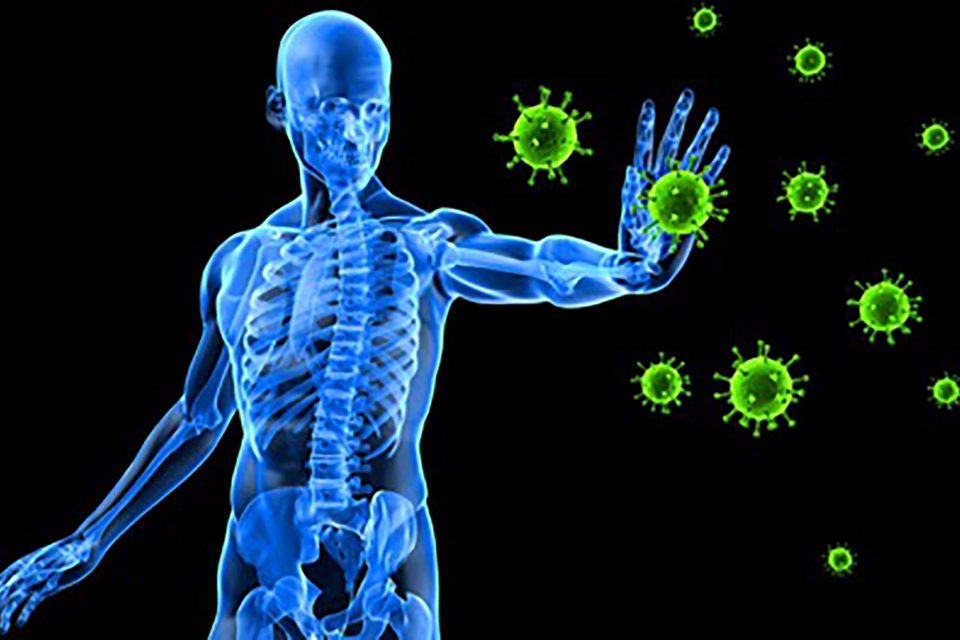Immune System
Rather than being confined to a particular organ, about 80 percent of your immune system resides in your gastrointestinal tract in the form of receptor cells. Because of this prime location, what happens in your gut powerfully influences your immune function and your health.
When your gut is healthy, you have a large, thriving community of beneficial or friendly bacteria, or probiotics, supporting your immune system receptor cells. They help form a protective barrier within your colon and intestines. Ideally, you want about 85 percent of your gut bacteria to be populated by the beneficial type.
Optimizing and supporting the beneficial bacteria in your gut is one of the most powerful things you can do for your health and well being, including your immune system health. By helping your body maintain an optimal balance of 85 percent beneficial to about 15 percent “other” microbes, you support the health-promoting benefits of probiotics and strategically, you’re overall health.
Probiotics, or beneficial gut microbes, influence many functions in your body. In addition to your immune health, researchers have found they affect your body weight, energy and nutrition, and your brain, both psychologically and neurologically. In addition, your gut microflora impacts the expression of your genes, epigenetics, which has a powerful effect on your well-being.
Probiotics benefit your health from head to toe in so many ways. They are essential for a multitude of bodily functions that research suggests taking a probiotic supplement may be even more important than taking a daily multivitamin.
Make sure your probiotic supplement is from a “live” culture or source, with at least 13 billion or more of live cultures of L’s and B’s. (Lactobacilli’s and Bifidobacteria families.)
Digestive enzymes supplementation is also a good practice for optimal gut and immune system health.
Your diet/nutrition should come from eating whole, real foods, plant based vegetables and fruits, 9-10 servings per day. Lots of greens and colors that are rich in polyphenols.
You need fiber to feed your good gut bacteria to maintain a healthy gut microbiome or ecosystem. By eating a diet rich in plant derived foods such as fruits and vegetables, especially eating them raw, the natural fiber from these foods will also feed your good gut bacteria adding to your overall optimal health.
Eat organic, non-GMO, whenever possible. Make sure your fish, such as Sockeye Salmon, is wild caught, your beef is grass-fed and your eggs and poultry are organic and pasture raised.
Eat fermented foods, such as sauerkraut and kimchi.
Excellent fiber supplements are: organic psyllium husk, organic chia seeds and ground organic flaxseeds. I put one tablespoon each in my daily green drink. It’s always best to get your fiber and nutrition from your foods first, but these are excellent complements to your diet and will help seed and feed your healthy gut microbiome.
Eliminate sugar, high fructose corn syrup, (sodas), grains and all processed foods. These foods feed the bad gut bacteria, leading to a gut imbalance or dysbiosis of bad bacteria versus good or beneficial bacteria. Artificial sugars contain a chlorine molecule that kills good gut bacteria, just like chlorine kills bacteria in a swimming pool. (We will discuss gluten and GMOs and how they affect your gut health in a future newsletter. The Standard American Diet is called SAD for a reason! )
Most all diseases start in the gut. Your gut is considered your second brain. Food is information. Your fork is your most powerful tool in disease prevention. You cannot out exercise a poor diet.
Antibiotics are good at killing the bad gut bacteria, but they also decimate the good gut bacteria. If you must take antibiotics, it’s imperative that you reseed your gut microbiome as soon as possible with all the above foods, supplements and lifestyle changes, because if your immune system is compromised, your body cannot fight off diseases such as, viruses, colds and flu, as well as most heart attacks, strokes, cancers, diabetes and obesity, our top killers in the US! Probiotics are a must after a course of antibiotics.
Don’t forget to hydrate. Don’t just drink when you’re thirsty. Drink from a source of pure, structured water. Drinking water during and after meals actually aids digestion, helping to break down food so your body can absorb the nutrients. Water also softens stool, which helps prevent constipation. In addition, by adding all of the above fibers to your daily regimen, you should enjoy several bowel movements a day!
Most people are dehydrated. A good rule of thumb for water intake is .5 ounces (oz) of water per pound (lb) of body weight. So, if you weigh 150 lbs. you should drink 75 oz. of water daily.
Fruits and vegetables have water stored in their contents, so besides the fiber, you gain the added benefit of the water. Win-win!
As a subscriber to my newsletter, I hope to provide you with the best advice and information to help you make informed choices to achieve optimal health, wellness and longevity in 2017 and beyond!

